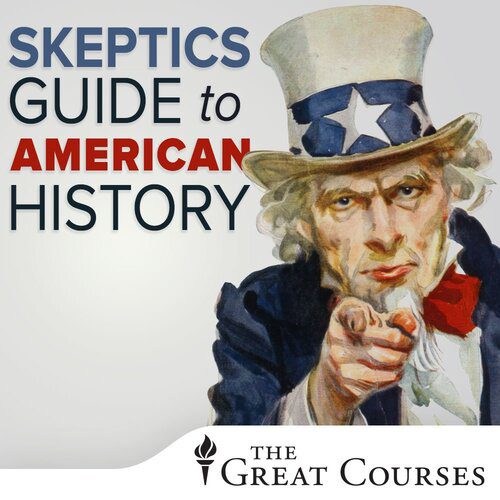“Keep the company of those who seek the truth- run from those who have found it.” – Vaclav Havel
Scope:
Everyone recognizes as myths the idea that Columbus was the first to discover America or the story that George Washington admitted cutting down a cherry tree. But very few people realize how much of what we think we know about American history is also mythical and mistaken. As historians often emphasize, many popular beliefs about history in general—and about U.S. history in particular—are myths, either totally false or, at best, only half true.
Moderator
Professor Mark A. Stoler is Professor Emeritus of History at The University of Vermont, where he specialized for almost 40 years in U.S. diplomatic and military history. He received his B.A. from The City College of New York and his M.A. and Ph.D. from the University of Wisconsin–Madison.
Myths and Realities of Historical Study
These lectures are devoted to identifying myths of American history and learning what historians now say about the true course of events in our past.
“History does not consist of rote memorization of facts about the past, and those facts do not “speak for themselves.“
Further, history does not repeat itself, nor can we draw lessons from these supposed repetitions. It’s also not true that history and memory are synonymous; they are, in fact, separate and often antithetical to each other.
The law of unintended consequences
The fact that consequences of human actions often differ sharply from the motivations of those who acted. Columbus, for example, wanted to fi nd a western water route to the Indies, not “discover” America.
Further, we often select facts to study in history on the basis of those unintended consequences.
Much of what we believe about American history is as untrue as the myth that Columbus discovered America.
Be wary of anachronistic thinking,
Distorting the past by dealing with events and ideas out of their proper chronological order and context. Such thinking often takes the form of projecting contemporary values.
Finally, we see that history and memory are not the same. Our memory and ensuing commemoration of the origins of events and ideas often differ quite dramatically from historical reality.
Lecture 2: Neither American nor Revolutionary?
The American Revolution is generally portrayed in terms of a unified“American people” rising up to defeat a great empire and establishing a democratic republic. As with all myths in history, this one contains an element of truth, but it also ignores some inconvenient facts: The colonists didn’t view themselves as Americans or as undertaking a revolution, and they could never have defeated the British alone. Indeed, it was almost despite themselves that the colonists created a revolution and a unique American ideology.
In effect, Jefferson used British theories regarding liberty from Locke and the Glorious Revolution to declare American independence. In that sense, the Revolution and the Declaration were not very revolutionary at all. The entire movement was an attempt to maintain traditional British rights against new and tyrannical British policies.
The Constitution was written to address the need to create a government strong enough to preserve liberty without giving it enough power to become tyrannical itself.
Romanticism, Transcendentalism, and the Second Great Awakening
The early 19th century witnessed an intellectual and spiritual upheaval in both the United States and Europe. This movement, known as romanticism, emphasized emotion and intuition, replacing the previous Enlightenment emphasis on reason. In New England intellectual circles, this led to the transcendentalist movement, which was translated into political action by such thinkers as Ralph Waldo Emerson and Henry David Thoreau.
The mass emotional movement at this time was the Second Great Awakening, a widespread evangelical religious revival that downplayed theological arguments in favor of heartfelt personal experiences.
The Second Great Awakening saw the democratization and expansion of religion in America that remain with us to this day.
All the Best in your quest to get Better. Don’t Settle: Live with Passion.

Comments are closed.